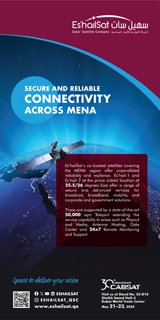Broadband in Brazil Faces its Biggest Challenge
São Paulo, Brazil, June 3, 2014– Broadband access in Brazil is facing a massive challenge as the country prepares to host the FIFA World Cup and the expected millions of soccer fans armed with their mobile phones, smart TVs, PCs and tablets. Participating at today’s Broadband and TV Connect Latin America event in São Paulo, the Broadband Forum said that the World Cup – coupled with 2016’s Olympic Games – is going to test Brazil’s broadband infrastructure across all technologies.
“The World Cup is one of the world’s most popular events which will undoubtedly put pressure on the fixed and mobile broadband network infrastructure,” said Robin Mersh, CEO of the Broadband Forum. “It’s all about capacity - meeting demand can be made easier and more cost effective by adhering to, adopting and actually helping to develop standards in all aspects of broadband provision. Using standards-based technology creates competitive and cost-effective purchasing environments for service providers as well as giving them the confidence in terms of a multi-vendor approach. It allows service providers to scale up networks at pace and that’s key in today’s fast moving world.”
The Brazilian broadband market is currently dominated by the more traditional and slower speed ADSL but fiber has been growing rapidly in the urban areas since in 2008. Primarily FTTC with VDSL termination, operators in Brazil are starting to provide major bandwidth uplift to their customers.
Oliver Johnson, CEO of broadband analyst firm, Point Topic, commented: “Brazil is a leading light for broadband in South America. It has good competition in many areas and the capacity to increase bandwidth for swathes of the urban population.
If Brazil can reduce consumer costs and address the lack of rural infrastructure, it can reach out to an increasingly large educated pool of potential customers eager to access the bandwidth of its urban cousins.”
The Broadband Forum is focused on decreasing the risk of new technology investment, offering tools for the industry to smoothly and cost effectively move to next generation networks, while capitalizing on new fiber solutions and Virtualization (Cloud, SDN and NFV) to rollout innovative and timely consumer and enterprise services. Work is also strong in the areas of network and digital home management, and significant new M2M work is launching around TR-069.
“Hosting the 2014 World Cup and the Olympic Games represents a major turning point for Brazil, opening up a wide range of opportunities, however the country must perform like an Olympic athlete to meet the challenge of the huge network load that will surge during this period. By sharing our tools and techniques, we can help regional service providers optimize their networks in preparation for these two major global events, enabling new technologies and innovative business models to come to market,” added Mersh.





